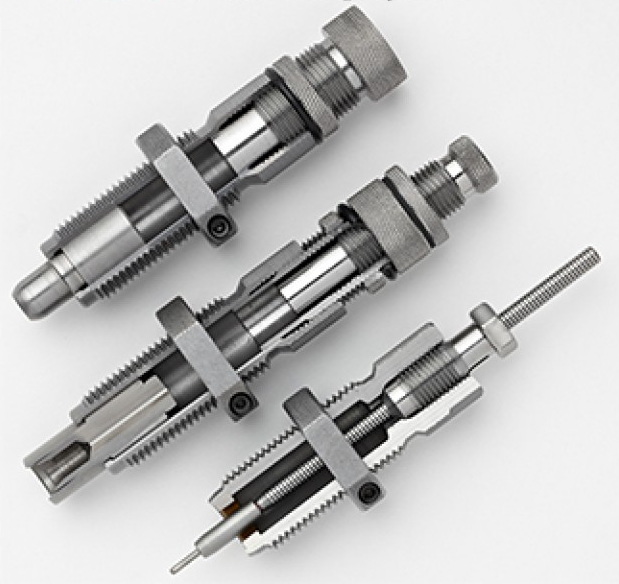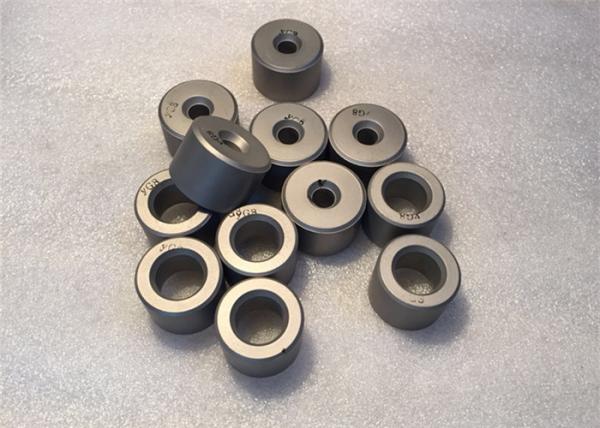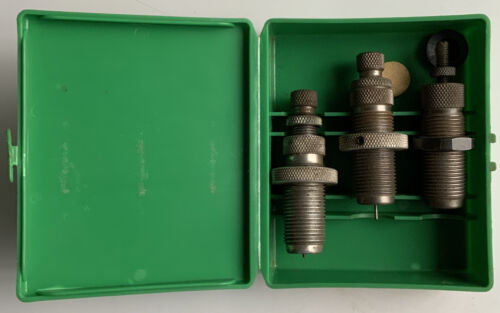Content Menu
● Introduction to Hornady Carbide Dies
● The Advantages of Carbide Dies
● Hornady's Commitment to Quality
● Types of Hornady Carbide Dies
>> Custom Grade vs. Match Grade
● Setting Up Hornady Carbide Dies
● Maintenance and Care
● Troubleshooting Common Issues
● Advanced Techniques with Hornady Carbide Dies
● Conclusion
● Frequently Asked Questions
>> 1. Q: Are Hornady carbide dies worth the investment?
>> 2. Q: Do I need to lubricate cases when using Hornady carbide dies?
>> 3. Q: How long do Hornady carbide dies typically last?
>> 4. Q: Can I use Hornady dies with other brands of reloading equipment?
>> 5. Q: What's the difference between Hornady Custom Grade and Match Grade dies?
Introduction to Hornady Carbide Dies
Hornady carbide dies have become a staple in the world of ammunition reloading, offering precision, durability, and ease of use that serious reloaders demand. Whether you're a seasoned reloader or just starting out, understanding the benefits and proper usage of Hornady carbide dies can significantly enhance your reloading experience and the quality of your ammunition.
The Advantages of Carbide Dies
Carbide dies, particularly those manufactured by Hornady, offer several distinct advantages over traditional steel dies:
1. Durability: Carbide is extremely hard, ensuring that the dies maintain their dimensions over thousands of reloads.
2. No Lubrication Required: For straight-walled cases, carbide dies eliminate the need for case lubrication, saving time and reducing mess.
3. Consistency: The hardness of carbide allows for more consistent sizing of cases, leading to more uniform ammunition.
4. Smooth Operation: Carbide dies have an exceptionally smooth surface, reducing wear on cases and making the reloading process easier.
Hornady's Commitment to Quality
Hornady has built a reputation for producing some of the finest reloading equipment on the market. Their carbide dies are no exception, representing the pinnacle of machining craftsmanship. Each die is hand-inspected and heat-treated for unparalleled durability and strength.

Types of Hornady Carbide Dies
Hornady offers several types of carbide dies to suit different reloading needs:
1. Custom Grade Dies: These are Hornady's standard offering, suitable for most reloaders.
2. Match Grade Dies: Designed for competitive shooters who demand the utmost precision.
3. Titanium Nitride Dies: Offering even greater durability and smoother operation than standard carbide dies.
Custom Grade vs. Match Grade
While both Custom Grade and Match Grade dies from Hornady are excellent choices, there are some key differences:
- Custom Grade dies are versatile and suitable for most reloading applications.
- Match Grade dies feature additional precision-enhancing elements like elliptical expanders and micrometer-adjustable seating stems.
Setting Up Hornady Carbide Dies
Proper setup is crucial for getting the best results from your Hornady carbide dies. Here's a step-by-step guide:
1. Clean your reloading press and dies thoroughly before installation.
2. Install the sizing die first, adjusting it according to Hornady's instructions for your specific caliber.
3. Next, set up the expanding die (for pistol cartridges) or the neck expanding die (for rifle cartridges).
4. Finally, install and adjust the seating die, ensuring it's set to the correct depth for your chosen bullet.

Maintenance and Care
To ensure the longevity and performance of your Hornady carbide dies:
1. Clean the dies regularly with a solvent and soft cloth.
2. Inspect the dies for any signs of wear or damage.
3. Apply a light coat of gun oil to prevent rust when storing for extended periods.
4. Store dies in their original packaging or a die box to protect them from damage.
Troubleshooting Common Issues
Even with high-quality dies like Hornady's, you may encounter some issues. Here are some common problems and solutions:
1. Stuck Cases: If a case gets stuck in a die, use a stuck case remover tool. To prevent this, ensure proper lubrication for bottlenecked cases.
2. Inconsistent Sizing: Check that your dies are properly adjusted and that your press is in good condition.
3. Bullet Seating Issues: Verify that you're using the correct seating stem for your bullet type and that the die is adjusted correctly.
Advanced Techniques with Hornady Carbide Dies
For reloaders looking to take their craft to the next level, Hornady carbide dies offer opportunities for advanced techniques:
1. Neck Sizing Only: For bolt-action rifles, neck sizing can improve accuracy and extend brass life.
2. Crimp Adjustment: Fine-tuning the crimp can optimize feeding and performance in semi-automatic firearms.
3. Custom Bullet Seating: Experimenting with seating depth can help you find the optimal configuration for your firearm.
Conclusion
Hornady carbide dies represent a significant investment in your reloading setup, but they're well worth it for the precision, consistency, and ease of use they provide. By understanding how to properly use and maintain these dies, you can produce ammunition that rivals or exceeds factory loads in quality and accuracy.
Remember, reloading is both a science and an art. While Hornady carbide dies provide the precision tools you need, it's your skill and attention to detail that will ultimately determine the quality of your reloads. Happy reloading!

Frequently Asked Questions
1. Q: Are Hornady carbide dies worth the investment?
A: Yes, Hornady carbide dies are worth the investment for serious reloaders. They offer superior durability, consistency, and ease of use compared to standard steel dies.
2. Q: Do I need to lubricate cases when using Hornady carbide dies?
A: For straight-walled pistol cases, no lubrication is required. However, for bottlenecked rifle cases, you should still use case lube to prevent sticking.
3. Q: How long do Hornady carbide dies typically last?
A: With proper care and maintenance, Hornady carbide dies can last for tens of thousands of reloads, often outlasting the reloading press itself.
4. Q: Can I use Hornady dies with other brands of reloading equipment?
A: Yes, Hornady dies are designed to work with standard 7/8"-14 thread presses, making them compatible with most major reloading press brands.
5. Q: What's the difference between Hornady Custom Grade and Match Grade dies?
A: Match Grade dies offer additional precision-enhancing features like micrometer-adjustable seating stems and elliptical expanders, making them ideal for competitive shooters and those seeking the utmost accuracy.
















